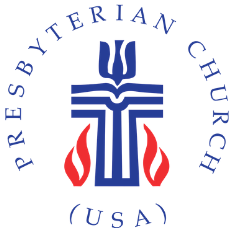Our Faith
Thompson Memorial is a Christian church within the Presbyterian Church (USA). We are biblical based, spiritually led, and we seek to be Christlike in all ways.
One of the first questions people often ask about Thompson Church is, "What does it mean to be Presbyterian?"
The term Presbyterian traces its roots to the New Testament Greek word presbuteros, which is translated as elder and today implies the governing method of the Presbyterian church, which is through a representative governing body rather than through a pastor alone. The Protestant Reformation, and particularly the teachings of John Calvin, provided the theological context for the Presbyterian church, which includes the central ideas that: 1) Scripture is authoritative and is the ultimate source of truth and 2) grace is the means of salvation and sanctification (our growth in faith and godliness).
Grace AND Gratitude
“Q: What is your only comfort in life and in death?
A: That I am not my own, but belong — body and soul, in life and in death — to my faithful Savior, Jesus Christ.
”
Two words can tell a lot of the story about our faith: grace and gratitude. We believe that God shows us grace in countless ways, and that our response to that grace is our gratitude. God shows us grace by loving and forgiving us, even when we fall short of God's will for us, our lives, and our church. God shows us grace by refusing to abandon us, even when we abandon God. God shows us grace by sending Jesus Christ to live and to walk among us and ultimately to overcome the power of death on our behalf. We respond to this amazing grace by expressing deep and genuine gratitude to God through worship, acts of service, and the daily witness of our lives of faith.
Do You...
Issues of faith can be amazingly complicated, to say the least. Sometimes, we may be tempted to create long lists of theological ideas that we agree (or disagree) with and use them to measure whether or not someone is "on our side." When we use these litmus-tests of faith, we can become very concerned with boundary questions: who is in, and who is out. At Thompson Church we strive to take a different approach, only asking three questions of those who wish to become members:
Do you profess your faith in Jesus Christ as Lord and Savior?
Do you renounce evil and affirm your reliance on God’s grace?
Do you declare your intention to participate actively and responsibly in the worship and mission of our church?
Our desire is to focus on who stands at the center of our faith: Jesus Christ. While issues of boundaries are important discussions, they are of secondary concern to the most important discussion: who is Jesus Christ, and how do we follow him? This is not to say that other questions of theology and doctrine are unimportant -- quite the opposite, in fact! We believe that a natural result of faith is the desire to seek understanding, but note the order. We do not have faith because we understand; we seek to understand because we have faith.
Seeking Understanding
“God’s word is spoken to his church today where the Scriptures are faithfully preached and attentively read in dependence on the illumination of the Holy Spirit and with readiness to receive their truth and direction.”
One way we seek understanding is through the regular reading and preaching of Scripture. We believe that it is through the Scriptures of the Old and New Testaments that God's Word is revealed to us. Through the words of prophets and poets, kings and disciples, we begin to understand who God is and who we are called to be. That is why at every worship service the reading and proclaiming of God's Word is a central part of what we do as a community.
Our Confessions
Another way we seek understanding is to study the confessional statements of the church. Thompson Church is a member congregation of the Presbyterian Church (USA). While this connection with the broader church is important to us for many reasons, one way this impacts us is through the use of a common set of confessions. Confessions are documents that have been written by the church throughout the ages to help state what we believe, and sometimes what we do not believe. We do not give confessions the same weight as Scripture, but we do believe that there is something to be gained by paying attention to what Christians throughout history have said about our faith.
“I BELIEVE in God the Father Almighty, Maker of heaven and earth, and in Jesus Christ, His only Son, our Lord; who was conceived by the Holy Ghost, born of the Virgin Mary, suffered under Pontius Pilate, was crucified, dead, and buried; He descended into hell; the third day He rose again from the dead; He ascended into heaven, and sitteth on the right hand of God the Father Almighty; from thence He shall come to judge the quick and the dead.
I believe in the Holy Ghost, the holy catholic church, the communion of saints, the forgiveness of sins, the resurrection of the body, and the life everlasting.
Amen.”
One of the most basic confessions, and one that we share in common with countless other Christian denominations, is called the Apostles' Creed. If you have ever attended Thompson Church, it is likely that you have recited this or a similar text during worship. The Apostles' Creed took its earliest forms in the second century as a statement used by those wishing to become Christians. Over the centuries it underwent some changes, and reached its final state in the eighth century.
Like many of our confessions, the Apostles' Creed helps us understand who God is and how God relates to us. In this case, the creed focuses on each member of the Trinity. Other confessions are much longer, exploring many complex faith questions.
If you want to know more about the beliefs of Thompson Church, a good place to begin is by talking with a member of our pastoral staff. If you enjoy reading about faith issues, you might also enjoy exploring the Presbyterian Church (USA) Book of Confessions (available as a free PDF download via the button below).






